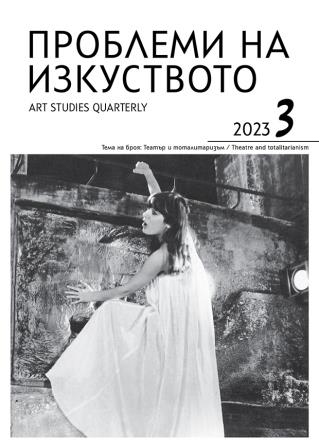Ibsen’s Peer Gynt: Between Existentialism and Parody
Ibsen’s Peer Gynt: Between Existentialism and Parody
Author(s): Ellen ReesSubject(s): Theatre, Dance, Performing Arts, Fine Arts / Performing Arts
Published by: Институт за изследване на изкуствата, Българска академия на науките
Keywords: Peer Gynt’s reception; early performances of Peer Gynt; intertextual references
Summary/Abstract: The article examines how Henrik Ibsen’s dramatic poem Peer Gynt (1867) balances between a radical existential questioning of the self and parody that satirizes Ibsen’s contemporary society. This makes it possible to explain how such a profoundly ambiguous and parodic work came to be hailed as Norway’s national epos. Peer is famously a profoundly flawed character, unable to take responsibility for his own actions. He is lazy, an unabashed liar, and profoundly unethical, measured by the morality of both our own time and Ibsen’s. Yet he is also famously charming, something that the poetic and comedic virtuosity of the original language of the poem underscores even more strongly than any translation can achieve. He thus appears to be a singularly inappropriate hero upon which to build a national identity, yet this is precisely what has happened in Norway. Peer Gynt is the single most important literary work in the Norwegian canon, eclipsing all others. Its metaphorical language permeates everyday speech. An entire regional tourist industry has been built on Peer Gynt, which culminates each August with an outdoor staging of the play on the shore of lake Gålå as the sun sets over the water, a full orchestra belting out Grieg’s score on site. In 1971 the Norwegian parliament initiated the “Peer Gynt of the Year” award, which goes to a person or group that has done an outstanding job of promoting socalled Norwegian values abroad. Ibsen’s satire directed at the excesses of nationalism are certainly not lost on Norwegian audiences, even while they respond positively to its patriotic elements. Peer Gynt strikes a delicate balance between existential questioning, irony, and nationalism; Ibsen’s playful use of parody echoes the widespread Norwegian tendency to embrace “selfirony” as a national characteristic.
Journal: Проблеми на изкуството
- Issue Year: 2023
- Issue No: 3
- Page Range: 4-9
- Page Count: 6
- Language: English
- Content File-PDF

